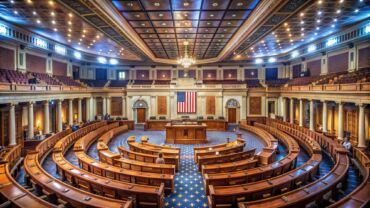Asapansa-Johnson Walker v. Azar, 2020 WL 4749859 (E.D.N.Y. 2020)
Available at https://img.nyed.uscourts.gov/files/opinions/20cv2834mo08172020.pdf
A federal trial court has blocked HHS from enforcing the provisions of its June 2020 final Section 1557 regulations that removed gender identity and sex stereotyping from the Affordable Care Act’s nondiscrimination protections. The 2020 regulations repealed significant portions of prior Section 1557 regulations that HHS considered duplicative of or inconsistent with other federal nondiscrimination rules (see our Checkpoint article), and were to take effect August 18, 2020. Under the court’s ruling, however, the prior regulations’ more expansive definitions of “on the basis of sex,” “gender identity,” and “sex stereotyping” (see our Checkpoint article) will remain in effect while litigation continues.
The case was filed by two transgender individuals who alleged that they had faced and would continue to face discrimination in health care due to the 2020 regulations’ narrowed protections. The court agreed with the individuals that the disputed provisions were contrary to the U.S. Supreme Court’s ruling in Bostock that discrimination based on sex (for Title VII purposes) encompasses discrimination based on sexual orientation or gender identity (see our Checkpoint article). The court determined that HHS acted arbitrarily and capriciously in issuing the regulations without properly considering the ramifications of a pending Supreme Court decision. The court also pointed out that the regulations were not officially published until four days after the Supreme Court had ruled, during which time HHS could have reconsidered the regulations in light of the decision. The court also referenced the Franciscan decision (see our Checkpoint article), which vacated the provisions of the prior regulations that prohibited discrimination on the basis of gender identity. The court noted that it had no power to revive a rule vacated by another district court but concluded that Franciscan did not address the concept of sex stereotyping embodied in the prior regulations and, therefore, rejected the government’s argument that the prior provision “has no real world effect” after Franciscan.
EBIA Comment: The full impact of this ruling remains to be seen as litigation continues in this and other cases challenging the 2020 regulations. Other provisions of the regulations, including those narrowing Section 1557’s applicability, repealing the nondiscrimination protections related to termination of a pregnancy, and eliminating the requirement for non-English notices and taglines for certain health plan communications, were not addressed by the court and remain in effect. For more information, see EBIA’s Health Care Reform manual at Section XXXIV.A (“Section 1557 Nondiscrimination Provisions: Grounds Prohibited Under Federal Laws”) and EBIA’s Group Health Plan Mandates manual at Section XXI.M.1 (“Interaction of Title VII and Section 1557”). See also EBIA’s Self-Insured Health Plans manual at Section XIII.D.5 (“Section 1557 Nondiscrimination: Nondiscrimination in Health Programs and Activities”) and EBIA’s Consumer-Driven Health Care manual at Section XXV.G.5.e (“Section 1557 Requirements”).
Contributing Editors: EBIA Staff.







